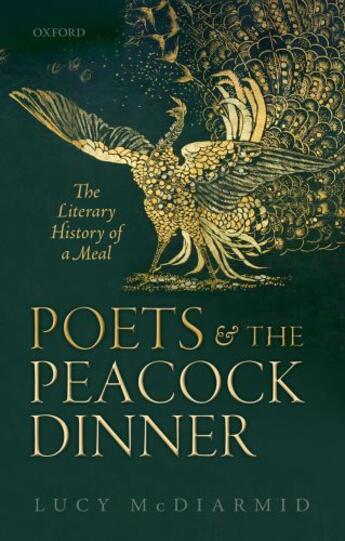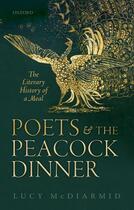Résumé:
On January 18, 1914, seven male poets gathered to eat a peacock. W. B. Yeats and Ezra Pound, the celebrities of the group, led four lesser-known poets to the Sussex manor house of the man they were honouring, Wilfrid Scawen Blunt: the poet, horse-breeder, Arabist, and anti-imperialist married... Voir plus
On January 18, 1914, seven male poets gathered to eat a peacock. W. B. Yeats and Ezra Pound, the celebrities of the group, led four lesser-known poets to the Sussex manor house of the man they were honouring, Wilfrid Scawen Blunt: the poet, horse-breeder, Arabist, and anti-imperialist married to Byron's only granddaughter. In this story of the curious occasion that came to be known as the 'peacock dinner,' immortalized in the famous photograph of the poets standing in a row, Lucy McDiarmid creates a new kind of literary history derived from intimacies rather than 'isms.' The dinner evolved from three close literary friendships, those between Pound and Yeats, Yeats and Lady Gregory, and Lady Gregory and Blunt, whose romantic affair thirty years earlier was unknown to the others. Through close readings of unpublished letters, diaries, memoirs, and poems, in an argument at all times theoretically informed, McDiarmid reveals the way marriage and adultery, as well as friendship, offer ways of transmitting the professional culture of poetry. Like the women who are absent from the photograph, the poets at its edges (F.S. Flint, Richard Aldington, Sturge Moore, and Victor Plarr) are also brought into the discussion, adding interest by their very marginality. This is literary history told with considerable style and brio, often comically aware of the extraordinary alliances and rivalries of the 'seven male poets' but attuned to significant issues in coterie formation, literary homosociality, and the development of modernist poetics from late-Victorian and Georgian beginnings. Poets and the Peacock Dinner is written with critical sophistication and a wit and lightness that never compromise on the rich texture of event and personality.
















